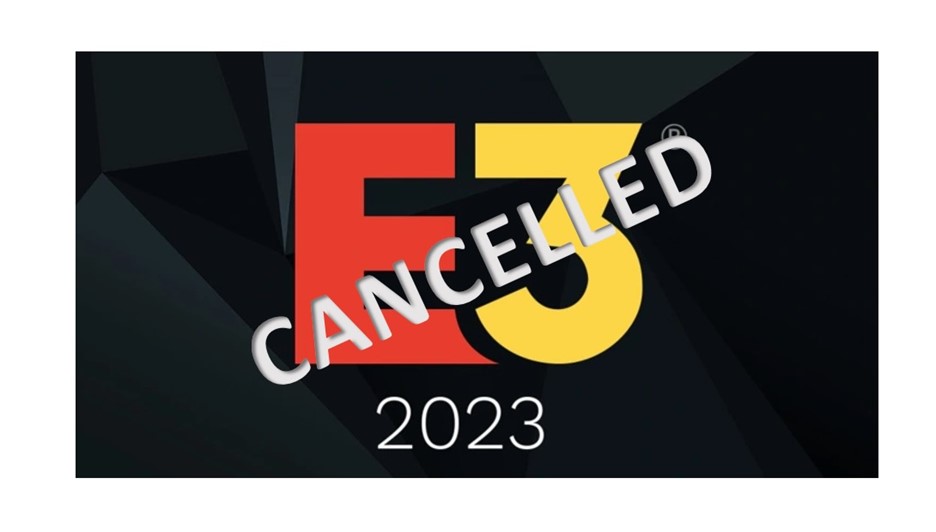E3, at one time a thriving trade show for the gaming industry, has experienced ups and downs, literal ebbs and flows, over the years. However, for the second year in a row, E3 has been cancelled months prior to the scheduled event. Last year, the cause was blamed on the residual pandemic effect, and this year (and perhaps even last year) the reason was more disheartening for the show organizers. Many large exhibitors opted out.
At one point, Electronic Entertainment Experience (E3) was one of the biggest games in town, consistently drawing crowds averaging 60,000 to 70,000 attendees eager to see the latest and greatest in current and upcoming game-related wares. No longer.
Like practically everything else in the world, E3 was shut down in 2020 when the pandemic struck. It went virtual in 2021, following many trade show trends. In 2022, E3 was cancelled. No in-person event, no virtual event. The reason: again, the pandemic, according to show organizers. That, despite the fact that most other industry trade events dropped the masks (some literally, some figuratively) and held live events, often with a virtual option, following the dark days of Covid. Even Comic-Con 2023 returned to pre-pandemic status following a two-year hiatus.
Last year, organizers planned to hold an in-person E3, then changed it to an online show, followed by a no show shortly afterward. At the time, organizer ESA (Entertainment Software Association) had proclaimed that E3 would return in 2023.
So, what happened? It appears that this show got too big for its britches, as they say. In the early 2000s, E3 was a three-ring circus. The console wars were on, and all the vendors were in hot competition both in the marketplace as well as on the show floor. Game developers, too, were pulling out all the stops while vying for attention. And, they got it, too, often through over-the-top booth stunts. Finally, E3 organizers started clamping down on outrageous and what most would consider borderline offensive behavior in the exhibition area.
On top of that, it became difficult to walk the show floor due to the large pushing and shoving crowds (picture free pineapple whip being handed out at Walt Disney World). And lines to see special exhibits were akin to those for the Star Wars: Rise of the Resistance and Avatar: Flight of Passage rides at Disney—during the summer season.
Meanwhile, the cost of exhibiting at E3, already heft, was skyrocketing to beyond outrageous levels, with some companies spending a reported $5 million to $10 million for their floor space. That’s a high cost of doing business when not a lot of business was being done, with exhibitors complaining that a growing number of unqualified attendees managed to get a pass using fake or exaggerated credentials.
One by one, the dominos began to fall, with big-name vendors like Nintendo and EA pulling back or withdrawing completely from the trade show. ESA attempted to kick-start E3, trying several lifesaving methods. They downsized the show. They got strict with attendee credentials. None of this helped. In March 2016, Wired proclaimed the end of E3 as more developers withdrew. Then, the organizers tried to upsize the conference. In 2017, E3—which had always been an industry-only event for retailers and the press—opened partially to the public, making available a limited number of general-admittance tickets. This seemed to help, with ESA reporting attendance of nearly 70,000. Things were looking up. And then, another shoe dropped. Sony announced it would not be at the 2019 show, but still, reported attendance, if it is to be believed, was healthy.

Then came the pandemic. Perhaps it staved off the inevitable demise of E3, or perhaps it was the cause. Either way, exhibitors began dropping out of this summer’s event, leading to the cancellation of both the digital and physical events. In a statement, the new organizers, ReedPop, pointed to the unforeseen issue of companies not having playable demos available in time and on resourcing challenges affecting their attendance.
That sounds plausible, as delays in release dates have become all too common of late due to issues relating to Covid or the economic downturns, depending on who you ask. Probably both are to blame. The reality, however, is that big companies are just not interested in exhibiting—Sony, Microsoft, Nintendo, Ubisoft, Sega, Tencent—with some claiming the 2023 show did not fit into their plans, and others saying they decided to move in a different direction.
Back in 2016, Wired seemed to have assessed the situation accurately, in more ways than one, noting that “the pulling out of the games expo signals a big shift in how games are played and sold.” Streaming killed the video game show.
Can E3 finally be put to rest? I suspect that unless the gaming giants have a change of heart for the 2024 event, the answer is yes. Already, smaller shows are maneuvering to pick at the E3 carcass. The reality, though, is that the way people buy and play games has evolved, and streaming is more commonplace than ever (an artifact from Covid?) for everything, including announcements and online events. It’s hard to argue that E3 has used up some of its nine lives already. Is there still one more left? Or is it time to strike up the funeral jazz band and send the show out in New Orleans style?